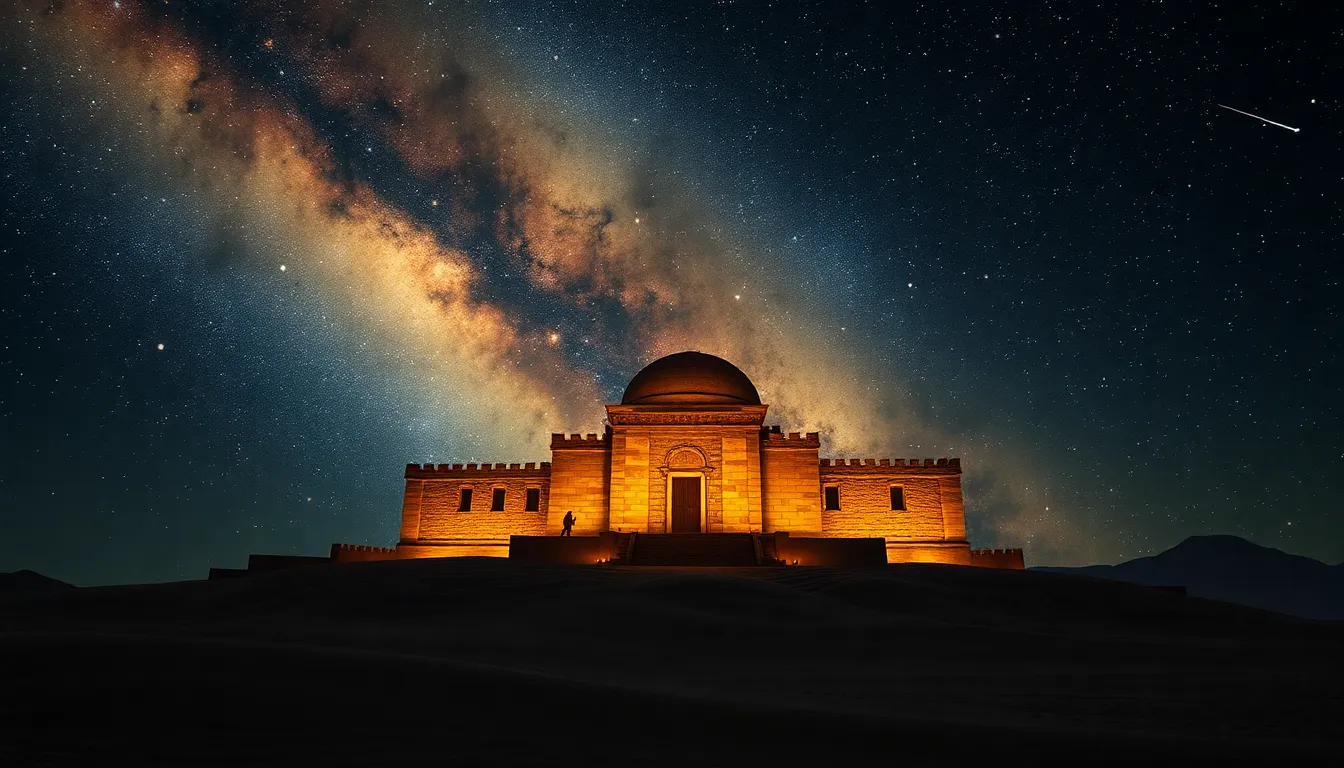The Stargazers of Babylon: Celestial Prophecies and Mythology
Introduction to Babylonian Astronomy
Babylon, one of the most prominent cities of ancient Mesopotamia, served as a center of civilization, culture, and learning. Flourishing around 1800 BCE, this vibrant city was renowned for its advancements in various fields, particularly in astronomy. The Babylonians were among the first to systematically observe the night sky, leading to significant developments in both astronomy and astrology.
Astronomy played a crucial role in Babylonian culture and society, influencing agriculture, religion, and daily life. The stargazers, known as astronomers, were highly respected individuals responsible for interpreting celestial phenomena. They used their knowledge to guide decisions that affected the lives of the people, from agricultural planning to the timing of religious festivals.
The Babylonian Zodiac and Celestial Bodies
The Babylonian zodiac, a sophisticated system that divided the sky into twelve distinct sections, laid the groundwork for modern astrology. Each section corresponded to specific constellations, and the Babylonians meticulously tracked the movements of celestial bodies.
- Key Celestial Bodies: The Babylonians observed various celestial bodies, including:
- The Sun
- The Moon
- Five visible planets: Mercury, Venus, Mars, Jupiter, and Saturn
- Significance: Each of these celestial bodies held particular significance, often associated with specific deities and mythological narratives.
To track celestial movements, Babylonian astronomers developed a series of methodologies, including the use of gnomons and water clocks to measure time and the angles of celestial bodies. They recorded their observations on clay tablets, creating a vast repository of astronomical knowledge.
Mythological Foundations of Babylonian Astronomy
Babylonian astronomy was deeply intertwined with mythology. Major myths often explained cosmic phenomena, demonstrating the civilization’s attempt to understand the universe.
- Creation Myths: The Enuma Elish, one of the most significant creation myths, describes the formation of the world and the heavens from primordial chaos. This myth has profound astronomical implications, representing the order imposed on the cosmos.
- Deities and Celestial Events: Gods such as Marduk, the chief deity, were believed to influence celestial events. Eclipses and planetary alignments were often interpreted as divine messages or omens.
These myths not only explained the cosmos but also served as a means of connecting the earthly realm with the divine, reinforcing the importance of astronomy in Babylonian spirituality.
Astrology in Babylonian Society
While astronomy focused on the scientific study of celestial bodies, astrology in Babylon was more about interpreting these celestial movements to predict future events. This distinction was crucial in Babylonian society, where the two fields were often intertwined.
- Astrology Among the Elite: The practice of astrology was primarily reserved for the elite, including kings and high priests. They consulted astrologers to gain insights into their reigns and the well-being of their kingdoms.
- Predictions and Governance: Astrological predictions based on celestial events significantly impacted governance. A favorable alignment of planets could be interpreted as a sign of prosperity, while an unfavorable one might lead to anxiety and the need for rituals to appease the gods.
Celestial Prophecies and Historical Events
Babylonian texts are rich in celestial prophecies, some of which are documented in ancient astronomical diaries. These texts often recorded significant celestial events, such as eclipses and conjunctions, alongside their interpreted meanings.
- Notable Celestial Prophecies: Several instances from Babylonian history illustrate the link between celestial observations and historical events:
- The prediction of an eclipse that coincided with the fall of a king.
- Foretelling droughts or floods based on planetary alignments.
- Influence on Political Decisions: Rulers often made crucial decisions based on astrological readings, including military campaigns and treaties.
The Legacy of Babylonian Astronomy
The impact of Babylonian astronomy reverberated through history, influencing subsequent civilizations such as the Greeks and Arabs. Their sophisticated astronomical knowledge laid the groundwork for many scientific advancements.
- Preservation of Knowledge: Babylonian texts were translated and studied by later cultures, preserving their astronomical insights for future generations.
- Modern Understanding: Today, scholars recognize the significance of Babylonian contributions to the field of astronomy, particularly in the development of observational techniques and the zodiac system.
Archaeological Discoveries and Ancient Texts
Archaeological discoveries have illuminated our understanding of Babylonian astronomy. Key findings include:
- Cuneiform Tablets: Thousands of clay tablets inscribed with cuneiform script provide a wealth of information about Babylonian astronomical practices, including detailed records of celestial events.
- Artifacts: Instruments such as gnomons and astrolabes have been unearthed, showcasing the technological advancements made by Babylonian astronomers.
These artifacts not only demonstrate the sophistication of Babylonian celestial practices but also their dedication to understanding the cosmos.
Conclusion: The Enduring Fascination with the Cosmos
The study of Babylonian astronomy continues to captivate modern scholars and enthusiasts alike. The civilization’s profound understanding of celestial phenomena and its integration into mythology and governance highlight the timeless human quest for knowledge about the universe.
In contemporary culture, the impact of ancient celestial prophecies can still be felt, particularly in modern astrology, which draws heavily from Babylonian principles. The intersection of mythology, science, and humanity’s quest for understanding the cosmos endures, reminding us of the rich legacy left by the stargazers of Babylon.



